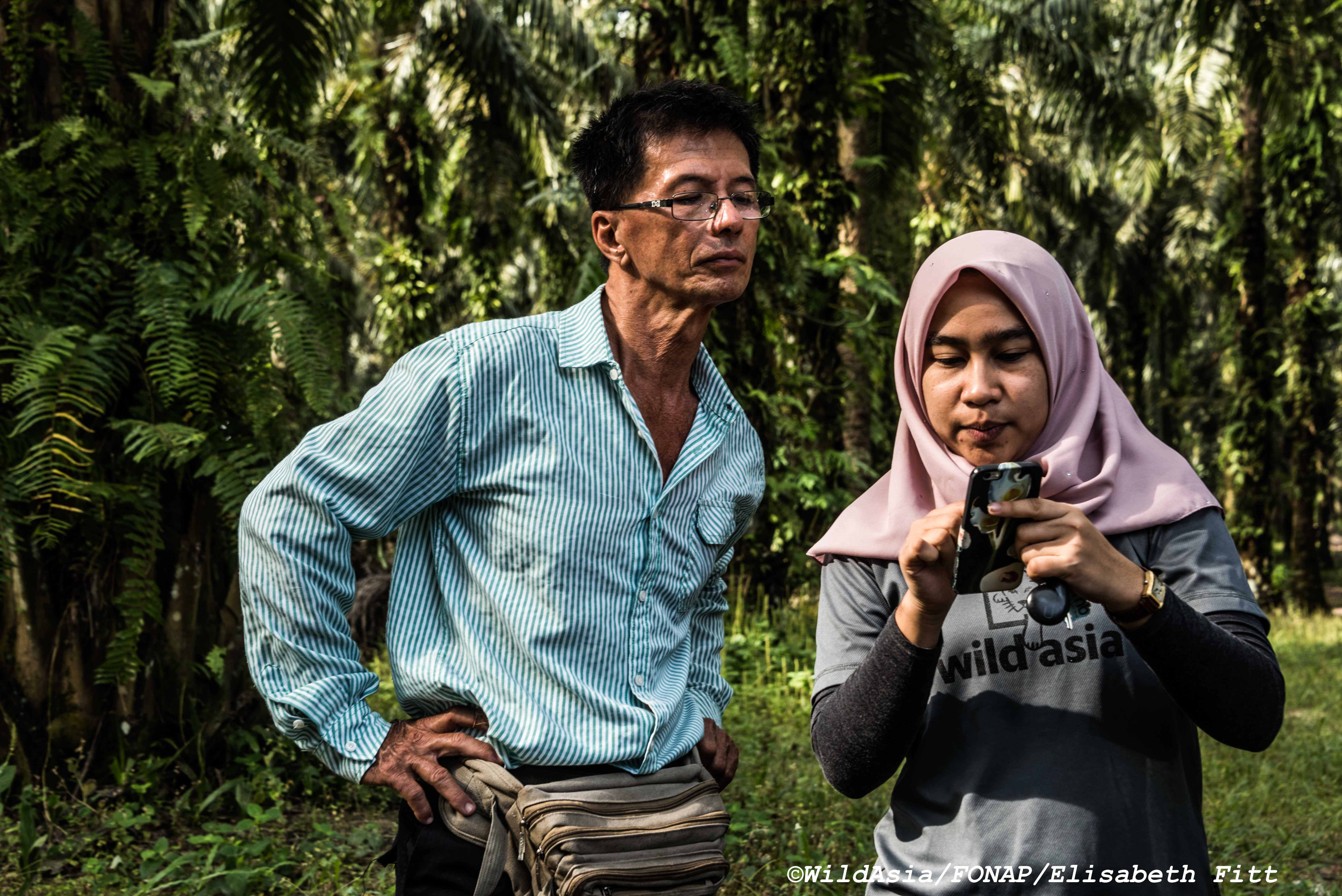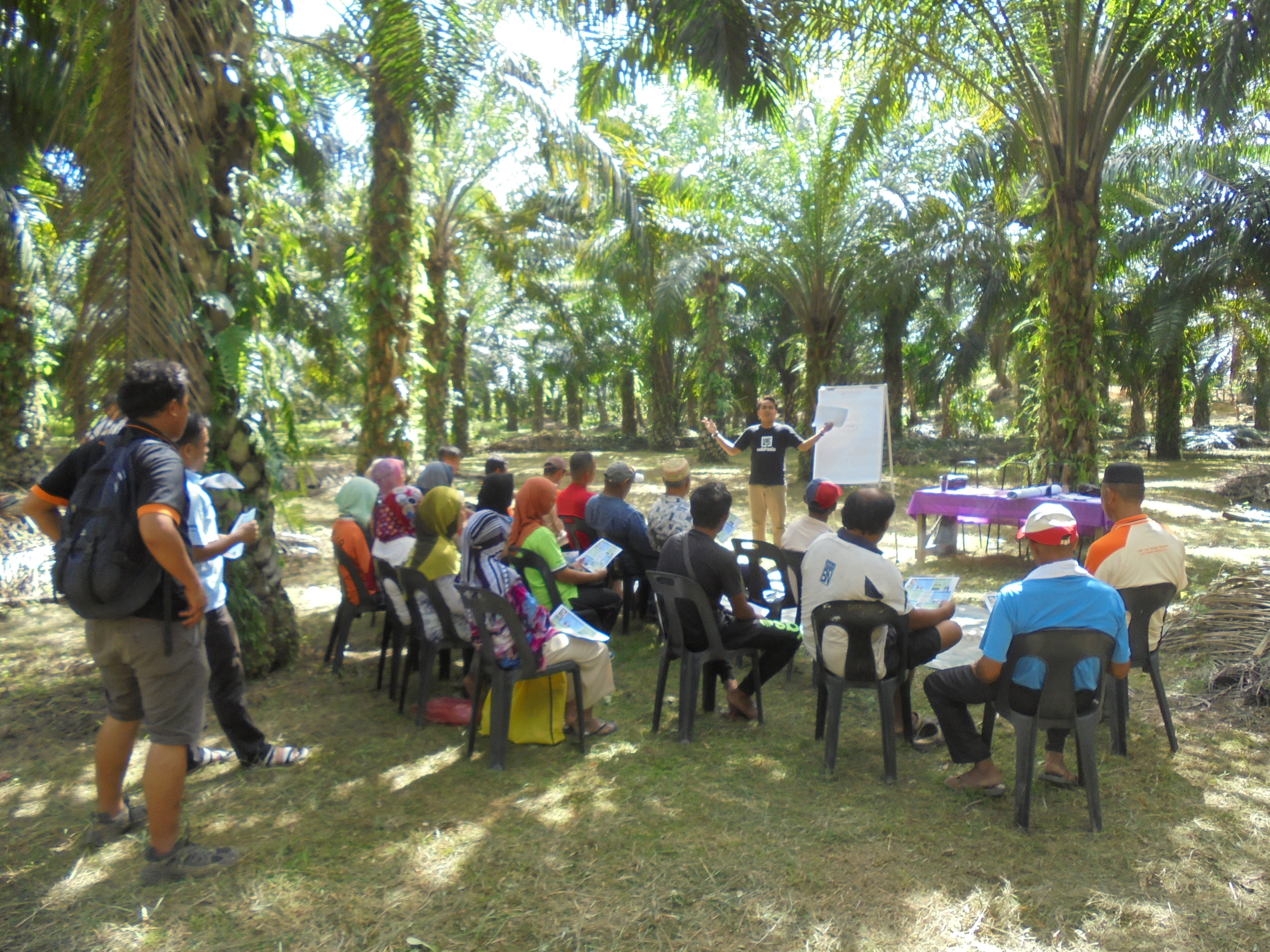Farmers Association In Ghana
Independent
Ghana Eastern, Western, Central and Ashanti regions
Completed Project
Not Certified
Yes
-
There are more than 20,000 independent smallholder oil palm farmers supplying FFB to medium and large scale oil palm processing mills in Ghana. However, these farmers do not receive any training or extension support from the processing mills and even government extension agents. Due to the fact that they are not organized into recognized groups, they receive no support from NGOs and or development partners. The average yield of these farmers is around 4 tons of FFB per ha per year; about 25% of what it could be. Poor agronomy, limited use of fertilizer and use of low yielding planting materials are the main causes for the low yield levels.
With increasing demand for RSPO certified palm oil coupled with the fact that smallholder farmers supply more than 70% of FFB required by oil palm processing mills, smallholders will be left out of the supply chain if they did not attain RSPO certification. These farmers however, do not have the capacity to pay for assistance to obtain certification. To ensure that they are integrated into the oil palm supply chain, funding was sought from the RSPO Smallholder Fund to assist 2000 independent smallholder farmers in Ghana to go through the RSPO certification process.
The project, which aims at integrating 2000 independent smallholder farmers in the sustainable palm oil supply chain, was implemented in 4 out of 6 oil palm zones in Ghana. The main activities implemented include;
- Formation of 15 recognizable smallholder groups, 10 of which are RSPO members
- Sensitization of smallholder farmers on RSPO Principles and Criteria
- Establishment of over 100 Best Management Practices (BMP) plots on selected smallholder farms which will serve as farmer field schools
- Training of farmers in good agricultural and sustainable practices for oil palm cultivation using simplified training materials
- Established Internal Control Systems Units within the groups
- GIS mapping of farms to establish traceability systems
The expected results of the project were as follows;
- 10 independent smallholder groups capable of lobbying for government support formed
- At least 150% increase in yields for at least 2000 independent smallholder farmers by end of project
- At least 2000 independent smallholder farmers attained RSPO certification by end of project
- 50 Best Management Practices plots (demonstration plots) established
2200 smallholder farmers trained in best management practices for oil palm cultivation
- Type of Support Required
- Additional Project Information
- Project Information
-
Looking for Project Partners
Funding
Seeking Additional Funding and used for
- Certification Audit
RSPO Credits
Selling Certified Volume as RSPO Credit?YesInterested to be Contacted by Potential Buyer?Yes -
Smallholder Story / Quote
“How could Chairman have processed 7 tons of FFB in a day if a market linkage had not be created for the group? Waliku Baba, a member of the Nankese Zonal Oil Palm Farmers Association.
Lessons Learnt
Creating awareness of best management practices coupled with setting up of demonstration plots for each farmer group for on-farm training as well as introduction of farmers to improved farming tools increased farmers’ enthusiasm to participate in the project activities. The farmers have been organized to manage their farming activities. The training in group dynamics and putting in place effective governance structures have led to group marketing and effective negotiation skills which have created marketing opportunities and better prices for most farmers.
Other lessons learned are;
- Farmers adopt innovations that bring financial rewards quickly
- Smallholder farmers cannot produce sustainably without external support
- Independent smallholders cannot go through the RSPO Certification process without external technical and financial support
- It is difficult for smallholder farmers to get land title. It is therefore important that the prevailing situation in each country is taken into consideration and appropriate document (for example, user right should be accepted).
Lessons learned on this project have been shared with the RSPO Smallholder Working Group and have served as input for development of smallholder documents. Smallholder applications developed have been piloted with these groups.
Relevant Tools used for Project Implementation
- Illustrated RSPO booklet
- Illustrated Yield Productivity Improvement handbook
- Farm Records book
- Group bye-laws
Other Information as Deemed Relevant by the Organisation
-
Project Details
Name of The Smallholder Group SupportedFarmers Association In GhanaType of Smallholders Supported by This ProjectIndependentCountry & Location of ImplementationGhana Eastern, Western, Central and Ashanti regionsProject PeriodStatus of The ProjectCompleted ProjectProject Certification StatusNot CertifiedCo-funded by RSSFYesAverage Smallholder Yield (in FFB/ha/year)
At Project Start: average 5.7 tons/ha/year
Current Yield: average 11.5 tons/ha/year as at December, 2016
Current Partner Organisations










